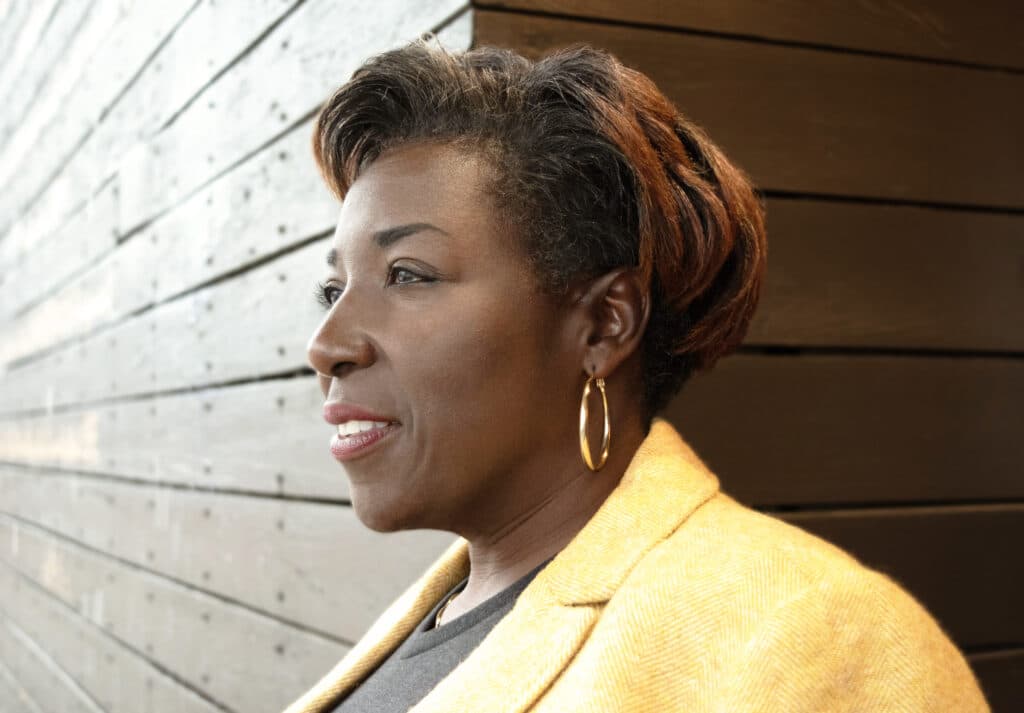There are activists, and then there are people who make it their life long mission to better humanity. Khadijah Tribble is both, and has been leading the way in cannabis social equity for years. She is a highly respected expert on equity and inclusion in the cannabis industry, and has advised cannabis investors, government regulators, entrepreneurs, and businesses on policy, business development, and community impact.
Khadijah Tribble is currently the VP of Corporate Social Responsibility for Curaleaf, a vertically integrated cannabis company that serves 23 states with over 100 dispensaries in all. Prior to joining Curaleaf, she founded Marijuana Matters, a cannabis education and advocacy incubator, and is also the founder of the Marijuana Policy Trust (MPT), a think tank providing expertise toward building an inclusive and diverse cannabis industry. Prior to MPT she was Chief Executive of Ground Game, LLC, a consultancy focused on health technologies and was a co-founder and director of business operations for United Medical Center’s Rose Clinic, and she holds a master’s degree from Harvard University’s John F. Kennedy School of Government.
Tribble’s story is rooted in advocacy at the core. At the Harvard Kennedy School, she was a Cheng Fellow in 2017 in their Social Innovation and Change Initiative.
At that time, she cited this problem:
Because of the racially motivated War on Drug policies, nearly 4 million African Americans and Latinos have been arrested, incarcerated and or convicted of a felony marijuana charge. Seventy five percent of those individuals will never move out of poverty unless the system is changed. Like the failed war on drugs, the new marijuana industry is poised to enshrine discriminatory practices in the regulatory system. By prohibiting the rights of those with marijuana related charges to fully participate in the cannabis marketplace, government and private industry partners are sealing the fate of people who already struggle for living wage employment, government assistance in housing and education support. Ironically, while people of color make up 88% of all marijuana related convictions for distribution of marijuana, they make up less than 1% of those who own and or work in the cultivation and dispensary sectors of the marijuana industry. Evidence is clear- African American communities where marijuana-related arrests outpace other communities have been socially and economically destroyed by mass incarceration related to drug law enforcement, yet these same communities are least likely to benefit from the billion-dollar economic boom that legalization now presents.
There is no business transformation without people transformation. https://t.co/8VJ3Z8pIzX pic.twitter.com/gCCdvw7tpA
— khadijah tribble (@tribbleme) May 18, 2021
The biggest issue for me related to drug policy is the exploitation of the narratives of real people from real communities devastated by the war on drugs. I ask in many settings, if people (especially communities of color) were known as “drug dealers” for selling cannabis then, and the regulated industry is profiting from selling cannabis now, what is the difference? If we are leaders of the hot new industry, then it would stand to reason that those with convictions for the same activities should be given the homage and respect due any trailblazer in cannabis. The legacy market kept the plant alive for such a long time, and now cannabis has been deemed essential in every state with medical and adult-use regulations.
– Khadijah Tribble
Marijuana Matters
Through advocacy, entrepreneurship, and education, Marijuana Matters identifies and eliminates barriers to economic opportunity in regulated cannabis markets for those disadvantaged by marijuana’s criminalization. The vision that Khadijah Tribble put forth when she founded the organization still stands today: repair what’s been dismantled, restore what’s been destroyed, and reclaim what’s been displaced.
Marijuana Matters (or M2) believes utilizing a social equity framework with respect to public policy decisions related to cannabis legalization is essential to the creation of a strong and viable marijuana industry. Their programming is defined by three pillars, education, advocacy, and entrepreneurship. They strive to improve the lives of individuals and communities negatively impacted by the war on drugs policies of the last 50 years.
Khadijah Tribble is Bringing a New Hope to Corporate Cannabis
Rooted in Good (RIG), a program that Khadijah is heading at Curaleaf, is focused on diversity, equity and inclusion, social equity, and sustainability. RIG was developed to consider the holistic health of each of the communities in which it serves around the country. This includes patients, employees, and neighbors, as well as the environments we impact, both locally and globally. The focus of its social equity initiative is on activating programs that foster repairing social harms and removing systematic barriers for people from communities most harmed by the War on Drugs and institutional oppression.
Curaleaf’s “Rooted In Good” initiative focuses on three core pillars: Diversity, Equity & Inclusion (DE&I), Social Equity, and Sustainability. To be Rooted in Good is to consider the holistic health of the entire community. This initiative includes patients, employees, and neighbors, and the environments we impact, both locally and globally.
When asked about what diversity and inclusion mean to her in terms of the cannabis industry, Tribble replied, “It means making sure that at our company that we create policies and practices that extend a wide net to include underrepresented communities. Whether it’s African American, LatinX, veterans, people with disabilities, and members of the LGBTQ community, diversity equity and inclusion means creating practices, policies, and systems inclusive of individuals from all of the underrepresented populations inside of cannabis. I believe it’s quite obvious that the way that cannabis has been criminalized and the impact of marijuana’s prohibition has hurt people of color, specifically black people.”
We couldn’t agree more, and can’t wait to see what this powerhouse advocate will do next.





